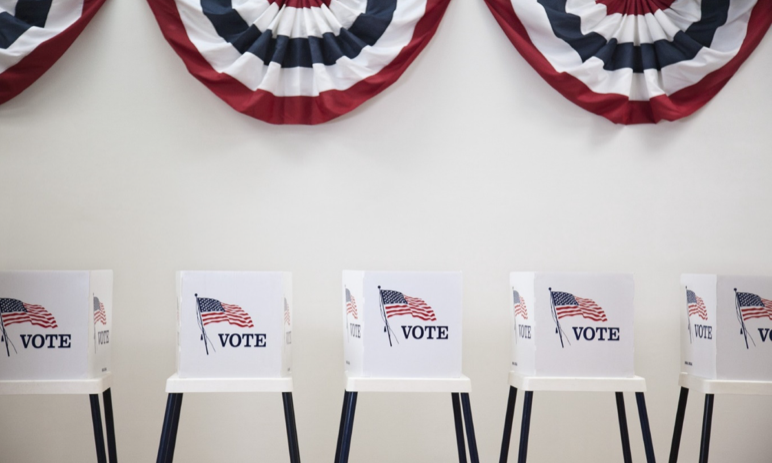CommentsCOVERING A CRISIS-Americans’ rights to vote, and to have their votes counted accurately, are the basis of democracy.
Those rights are under attack — via insecure elections, voter suppression, grotesque gerrymandering, and other direct and indirect attacks on our central rights and duties in a democracy.
Malign forces and staggering incompetence have made our elections a travesty. You would think, given the state of our elections, that they would be at or near the top of journalists’ agenda — as an issue deserving of relentless journalism putting it front and center for the public.
Instead of the sustained, deep, broad, contextualized coverage elections should have, we’ve gotten sporadic, episodic coverage.
It is not, and that represents a staggering failure.
Instead of the sustained, deep, broad, contextualized coverage elections should have, we’ve gotten sporadic, episodic coverage.
Some of it is brilliant. For example, “The Crisis of Election Security,” Kim Zetter’s superbly researched New York Times article on America’s (deliberately?) insecure and often unverifiable voting systems, is an absolute must-read. But Zetter’s excellent work is the exception proving the rule that our news media, overall, have let us down.
And not for the first time in recent years, of course. Journalists have been cheerleaders for the Iraq War, missed the financial bubble, and put out grotesquely misguided political coverage in 2015–2016. These are giant issues. Great individual work has been lost amid overall indifference and misguided approaches.
As journalists were distracted by other stories, our election mess was brewing. Our voting systems were already vulnerable, and they’ve only gotten worse. Now, it’s a genuine crisis and there’s almost no time for journalists to catch up.
Before I suggest how they could do that, I do want to offer kudos to some who — to their eternal credit — have tried to get the public’s attention. They include reporters like Zetter, small journalism organizations (e.g. Talking Points Memo, Mother Jones, and The Nation), academics like Carol Anderson, and a few individual journalists in places where voter suppression and insecurity are particularly egregious. They, among not many others, are at least trying.
Big Journalism has occasionally done solid and inspired work — Zetter’s piece is an example. But, again, it has been sporadic coverage of an issue that demands so much more.
If lack of resources is the problem, there’s a way to fix it. I recently argued for a multi-organization, collaborative approach to topics that are broad, deep, and in need of context. This is one of those topics.
Journalists can’t fix a corrupt political system. But it’s their absolute duty to give the people who can fix it — voters — the kind of information they need.
It’s also an issue that has a distinctly local angle. Resources are a real issue amid a business-model meltdown, because we vote where we live.
So, here’s my challenge to every news organization — national, regional, and especially local: Please make a concerted and ongoing effort to ensure that your readers, viewers, listeners, and followers know their essential rights, and whether those rights are being challenged. Here’s some of what they need from journalism right now:
- How to register to vote, and what the deadline is for registration.
- How to make sure that their names have not been purged from voter rolls (an increasingly common tactic of voter suppression).
- How to vote early or by mail, if those choices are available.
- What tactics, if any, are being used to prevent them from voting, and how to counter them.
- Security, or lack of security, in voting systems, including whether a jurisdiction’s votes are going to be “counted” by inherently untrustworthy, or unverifiable, machines.
- All of the above should be pasted at or near the top of journalism organizations’ homepages, pushed out at least daily in social feeds, and (for traditional media) repeated frequently in print editions and broadcasts.
There’s more, but that’s a good start. Even the smallest local newsroom can do most of those things, and partner with others in the area to do the rest. Even better would be a collaboration with other local newsrooms from the start. Please, start today.
Journalists can’t fix a corrupt political system. But it’s their absolute duty to give the people who can fix it — voters — the kind of information they need. Journalists can help move vital matters high on the public agenda, but this one is nowhere near the top. It should be.
Democracy is about participation, and voting is one of the most basic ways that happens. If we don’t even try to ensure that every eligible voter can cast a verifiable, secure ballot, we’re finished.
It’s probably too late for major collaborations before this year’s elections, but there’s still time to get at least some of the coverage we need in the next few weeks. If nothing changes, I fear we’re going to wake up on November 6 and discover that it’s too late, period.
(Dan Gillmor has been a Medium member since Mar 2018. The first rule of a conversation: listen. Bio and disclosures can be found here.) Prepped for CityWatch by Linda Abrams.














